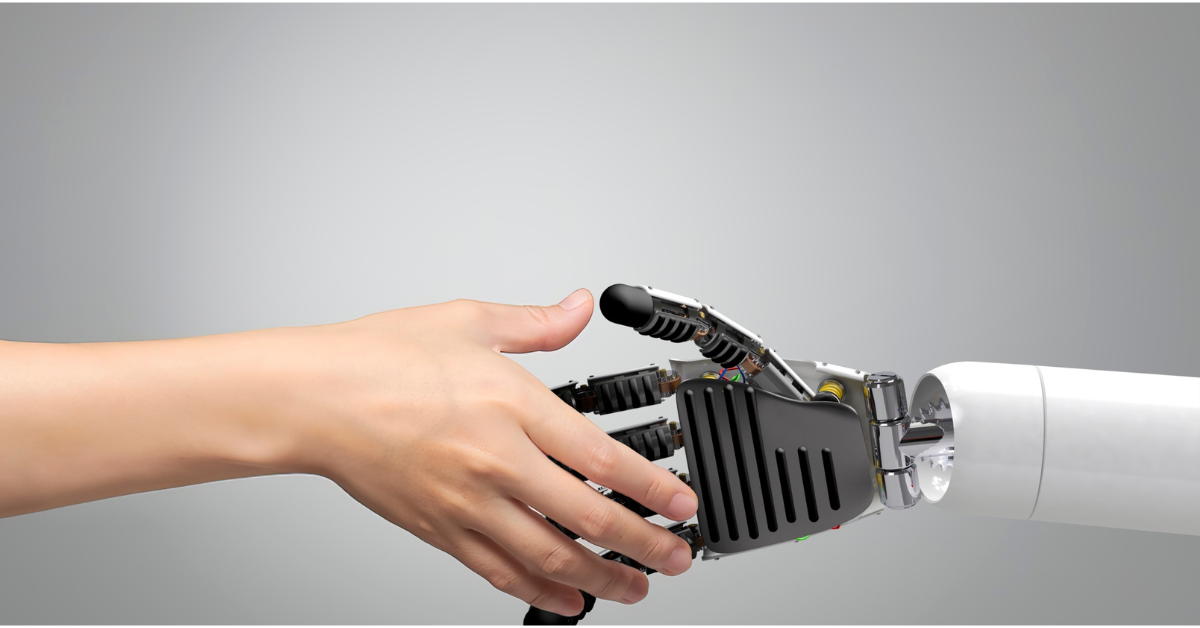The question isn’t whether artificial intelligence will reshape your workplace. It already has. The real question is whether you’ll be leading that transformation or watching from the sidelines as others advance their careers by mastering human-AI collaboration.
As a dean of digital learning and instruction, I’ve watched thousands of professionals navigate this shift. The winners share something in common: They’ve stopped viewing AI as a threat and started treating it as the most powerful colleague they’ve ever had. But here’s what most people miss—successful human-AI collaboration isn’t about learning to use tools. It’s about fundamentally reimagining how work gets done.
The new rules of professional success
We’re witnessing the death of the solo performer and the rise of the collaborative strategist. The MIT Sloan Management Review put it perfectly in their February 2025 analysis: combinations of humans and AI work best when each party can do the thing they do better than the other.
Think about what this means for your career. The professionals who thrive aren’t those with the deepest technical knowledge—they’re the ones who understand how to orchestrate the perfect blend of human insight and AI capability.
Consider three fundamental shifts happening right now:
The pattern recognition revolution: AI excels at finding patterns in vast datasets that would take humans months to analyze. But it takes human wisdom to understand what those patterns mean for your business strategy.
The creativity amplification effect: AI can generate dozens of creative concepts in minutes, but human judgment determines which ideas will resonate with real customers and align with brand values.
The decision-making evolution: AI provides unprecedented analytical depth, but humans must navigate the ethical implications and long-term consequences of those decisions.
The most successful professionals I’ve observed have learned to think of AI as a thinking partner, not a replacement. They’ve developed what I call “collaborative intelligence”—the ability to seamlessly blend human creativity with AI’s computational power.
The skills that will define your career
The half-life of professional skills has shrunk to less than five years, according to research from Jorge Tamayo and colleagues. This isn’t about updating your existing capabilities—it’s about developing entirely new ways of thinking about work itself.
AI fluency: This goes beyond knowing how to use ChatGPT. True AI fluency means understanding when to trust AI insights, when to question them and how to guide AI toward better outcomes. It’s the difference between being an AI user and being an AI orchestrator.
Prompt mastery: The ability to communicate effectively with AI systems is becoming as crucial as traditional writing skills. As Salesforce’s 2025 research reveals, prompt engineering is like having a conversation with AI, where clear instructions and context lead to accurate and relevant outputs. The professionals who master this skill unlock AI’s full potential.
Critical evaluation: AI can produce compelling but incorrect information with complete confidence. The ability to fact-check, identify biases and verify AI-generated insights isn’t just helpful—it’s essential for maintaining professional credibility.
Ethical navigation: Every AI decision carries ethical implications. The professionals who advance fastest are those who can balance efficiency with responsibility, understanding not just what AI can do, but what it should do.
Continuous learning mindset: The AI landscape evolves monthly, not yearly. The World Economic Forum’s 2025 analysis emphasizes that organizations must leverage AI’s capabilities and capitalize on human strengths taking over at that point . This requires professionals who can adapt their roles continuously.
The education revolution you can’t afford to miss
Traditional education models are failing to prepare professionals for this new reality. The solution isn’t another degree—it’s strategic reskilling that focuses on human-AI collaboration from day one.
Online education has become the testing ground for this new approach. We see extraordinary results when learners engage directly with AI tools while developing critical thinking skills. Instead of learning about AI in theory, they’re learning to work with AI in practice.
The most effective programs combine three elements: hands-on AI tool experience, ethical reasoning development and real-world project application. This isn’t about replacing human capabilities, it’s about amplifying them.
What makes this particularly powerful is how it addresses the trust gap. 2023 research demonstrates that much workplace AI distrust stems from exaggerated perceptions of AI’s capabilities. When professionals experience AI’s actual strengths and limitations firsthand, they develop realistic expectations and effective collaboration strategies.
The opportunities hidden in plain sight
While many worry about AI replacing jobs, forward-thinking professionals are discovering unprecedented opportunities. The integration of AI is creating entirely new roles: AI trainers, human-AI workflow designers, AI ethics specialists and collaborative intelligence managers.
More importantly, AI is eliminating the tedious work that prevents professionals from focusing on high-value activities. Imagine spending your days on strategy, relationship building and creative problem-solving instead of data entry and routine analysis.
The productivity gains are staggering. Organizations implementing effective human-AI collaboration report efficiency improvements of 40 to60 percent in knowledge work. But here’s the key: These gains come from collaboration, not replacement.
Your next move
The future belongs to professionals who can bridge the gap between human wisdom and AI capability. This isn’t a distant future—it’s happening right now, and the professionals who master it first will have an insurmountable advantage.
The question isn’t whether you’ll eventually work with AI. The question is whether you’ll be among the first to master human-AI collaboration or among the last to catch up.
As someone who’s dedicated their career to preparing professionals for the future, I can tell you this: The collaborative advantage isn’t just about staying relevant. It’s about becoming indispensable in an AI-driven world.
The transformation is already underway. The only question is whether you’ll be leading it or following it.














